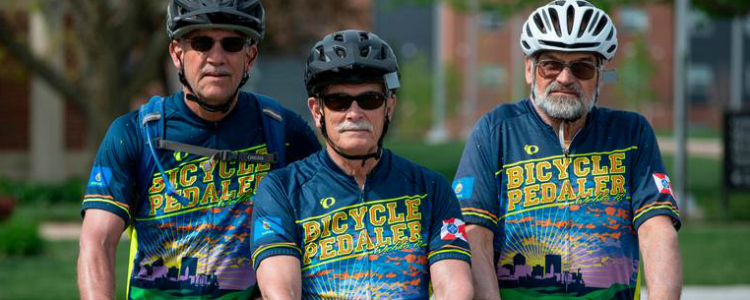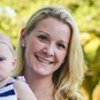Bridget’s WREATH: Wichita to Winnipeg – Ride for Eating Disorder Awareness and Therapy
My sister, Bridget, was diagnosed with anorexia when she was in 7th grade; she was only 12 years old. I was a freshman in high school, and at 15, I had limited capacity or empathy for her daily challenges. I have to admit, it took losing her for me to more fully understand the depth of this disease and its impacts.
After twenty-two years of suffering with anorexia and depression, my sister ended her life and her suffering at the age of 34. Our family has chosen to share her story in hopes that fewer suffer and more survive.
I had a very crude understanding of anorexia for most of Bridget’s life. Like most ill-informed people I thought, “Why doesn’t she just eat? Doesn’t she know she’s not well?” I thought and said, “If she would only [eat/try harder/fill in the blank]…” I was incredibly judgmental. I had no idea how hard she was trying, and that she was literally in a fight for her life. I thought that because we had done family counseling, been to family weeks at inpatient treatment facilities, and we were around her, that I understood this disease. I had no idea, and I am still in my infancy in trying to understand. I wish I had known, and I want more people to know and better understand this disease so that we can support those who are impacted.
Anorexia doesn’t discriminate. On paper, and to most of the outside world, my sister’s life was pretty amazing. Bridget was brilliant. Not just smart—MENSA smart. She was a successful plastic surgeon with an incredible career ahead of her. She changed lives. She saved lives. She was fearless in her world travels. She spoke fluent Spanish. She was kind. My sister has/had two parents who love her beyond measure, and literally did (and would have done) anything to help. We can’t assume that intelligence or a supportive family [or insert any other societal bias] means that our daughters, sisters, and friends are not at risk.
My sister struggled with anorexia for over two decades, and during that time she tried all available treatments. Some were covered by insurance; many were not. She went through inpatient treatment three times; worked with therapists, psychiatrists, dietitians; tried various medications/dosages, as well as more experimental treatments. Our family was lucky to have the means to pay for these treatments, but many do not. We need to do more to provide access to — and availability of — those treatments for the women and men who need them. We need to advocate for better coverage of treatments for mental health disorders; and for those like my sister, for whom these treatments are not enough, we need to support research efforts to find effective and lifesaving treatment. We need to provide that hope.
For these reasons and more, my father, Paul Harrison, has chosen to raise funds for NEDA. On May 10th, close the one-year anniversary of losing Bridget, my father, his best friend, and his brother will ride their bicycles from our home town of Wichita, Kansas to Winnipeg, Canada. My mother Carolyn Harrison will follow the ride as a guide and guardian. They are calling the ride Bridget’s WREATH: Wichita to Winnipeg – Ride for Eating Disorder Awareness and Therapy. We hope that this ride not only honors my sister’s memory, and also raises awareness and understanding of eating disorders, and, through fundraising, advances research and treatment options for those who suffer.
We encourage anyone who reads Bridget’s story to share this post, the NEDA webpage, learn more and donate to http://facebook.com/BridgetsWreath/.
Megan Harrison resides in Houston, TX with her husband, Greg Schwartz, and Children Harrison (age 3) and Harper (age 1). Megan works for ExxonMobil in Global Marketing as the Global Fuels Product Manager.





